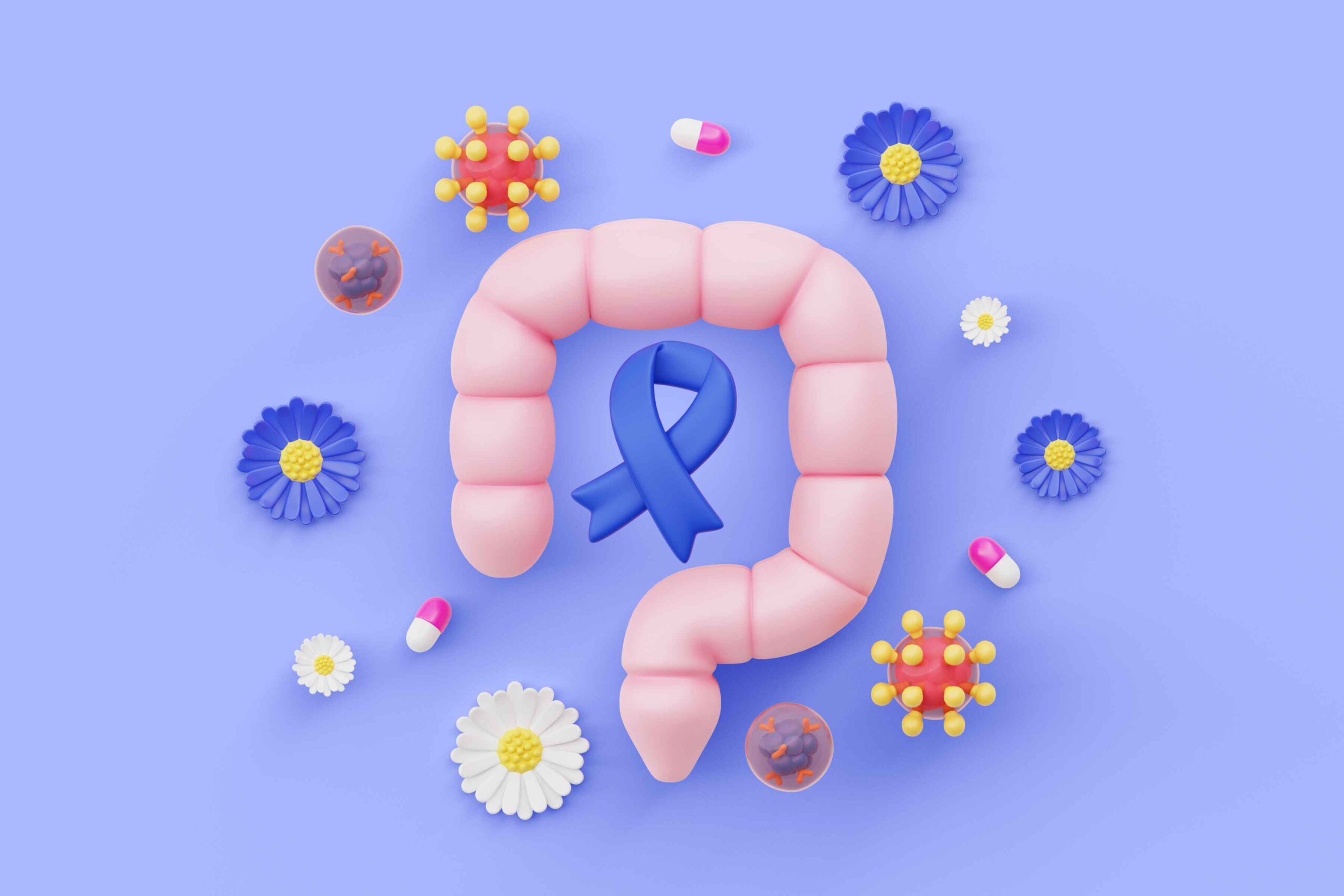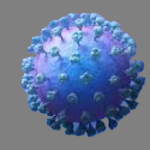Colon Cancer: A Comprehensive Understanding of the Dangerous Risk Factors and Preventive Measures
Developing in the colon or rectal tissues, colon cancer—also referred to as colorectal cancer—is a malignant disease. It arises from the lining of the gastrointestinal tract, specifically the large intestine, and typically starts as small, benign growths called polyps. These polyps can turn malignant over time. This particular type of cancer is the one most diagnosed worldwide in men and women equally. As per the Global Cancer Observatory (GCO), colorectal cancer ranks third in incidence and second in mortality worldwide. In 2020 alone, it was estimated that there were approximately 1.93 million new cases and 935,000 deaths attributed to this disease.
The incidence of colon cancer varies significantly and is influenced by factors such as lifestyle, diet, and access to healthcare. Countries with higher socio-economic status like North America and Europe have the highest incidence rates, while lower incidence rates are reported in African and Asian countries. But the spread of Westernised ways of living and eating has also led to more cases in some places of Asia and Africa.
Symptoms and Indications
Early-stage colon cancer may not present any noticeable symptoms, making regular screening important for early detection. As the illness gets worse, a number of signs may show up, such as
–Altered bowel habits: More than a few days’ diarrhoea or constipation; also, a change in stool consistency.
– Rectal bleeding: Blood in the stool or dark, tarry stools may indicate bleeding from the colon.
– Abdominal discomfort: Long lasting Cramping, gas, or pain that does not go away.
– Unexplained weight loss: One should be concerned about sudden weight reduction devoid of changes in food or exercise.
– Fatigue: Continuous fatigue or weakness that does not improve with rest is a symptom of chronic fatigue.
– Narrowing of stool: A change in the shape of the stool, most notably if it becomes thin and can resemble a pencil.
If any of these symptoms persist, it’s important to consult with a healthcare professional for further evaluation.

Causes of Colon Cancer
The exact causes of colon cancer remain largely unknown, but several factors contribute to its development. Some of the major contributors include:
– There are two hereditary conditions that increase the likelihood of developing colon cancer: Lynch syndrome and familial adenomatous polyposis.
– Age: After age 50, colon cancer becomes far more likely.
– Family history: If someone’s parent or child has colon cancer, that person is more likely to get the disease themselves.
– Inflammatory bowel disease: An higher risk of getting colon cancer is linked to inflammatory bowel disease, which can be caused by conditions like Crohn’s disease and ulcerative colitis.
– Dietary factors: High consumption of red and processed meats, low fiber intake, and an overall unhealthy diet may predispose individuals to colorectal carcinoma.
How to Diagnose?
Usually combining medical history, physical examination, and diagnostic procedures, colon cancer diagnosis calls for. Common procedures include:
Colonoscopy
a method that makes use of a flexible tube that is fitted with a camera in order to provide direct observation of the colon and the rectum respectively.
It is considered the gold standard for diagnosis and also allows for the removal of polyps during the examination.
Biopsy
refers to the process of removing a sample of tissue in order to screen it for cancer cells.
Imaging tests
Such tests as MRIs or CT scans can help ascertain whether cancer has progressed outside the colon.
Timely diagnosis is critical, as early-stage colon cancer has a much higher survival rate compared to late-stage diagnoses.
Risk Factors Associated with Colon Cancer
Colon cancer has several risk factors both controllable and non-modifiable. Key risk factors include
–Non-modifiable factors: Age, family history, certain genetic syndromes, and gender (males are slightly more susceptible).
– Modifiable factors: Sedentary lifestyle, obesity, smoking, heavy alcohol use, and poor dietary choices.
Understanding these risk variables can help with prevention initiatives and promote risk-reducing lifestyle modifications.
Prevention of Colon Cancer
Alterations to one’s way of life and careful screening are both necessary for the prevention of colon cancer. Key strategies for prevention include
1.Regular Screening: Starting screening tests, such as colonoscopies, at age 45 or earlier if there are risk factors.
2.Healthy Diet: An emphasis on a diet that is abundant in fruits, vegetables, whole grains, and lean proteins while reducing red and processed meats is what is meant by the term “healthy diet.”
3.Physical Activity: Engaging in regular exercise can help reduce the risk of colon cancer and support overall health.
4.Weight Management: Keeping a good weight is absolutely vital since obesity is a known risk factor.
5.Limiting Alcohol Consumption: Consuming alcohol in moderation can help reduce the chance of developing colon cancer.
6.Tobacco Cessation: Quitting smoking has numerous health benefits, including a decreased risk of various cancers.
7.Probiotics: Incorporating probiotics into the diet may help maintain gut health and prevent the development of colorectal problems.
Treatment Options
When it comes to treating colon cancer, the treatment is often individualised based on the stage of the disease as well as the patient’s overall condition. The primary treatment modalities include:
– Surgery
Removing the malignant colon portion and surrounding lymph nodes is the most typical treatment procedure.
Occasionally a colostomy could be required.
–Chemotherapy
Utilized either before surgery to shrink tumors or after surgery to eliminate remaining cancer cells, particularly in cases of advanced cancer.
– Radiation Therapy
Often used in conjunction with other treatment modalities, particularly for rectal cancer, to destroy cancer cells.
– Targeted Therapy and Immunotherapy
Emerging treatments that are designed to specifically target cancer cells or boost the body’s immune response against the cancer.
The Role of Lifestyle Changes in Prevention
Making adjustments to one’s way of life is one of the most important factors in preventing colon cancer. The adoption of a healthier lifestyle can decrease not only the risk of colorectal cancer but also various other chronic diseases.
1.Balanced Diet
Consuming a wide variety of nutrient-rich foods while avoiding processed foods c ioxidants and fiber, such as fruits, vegetables, seeds, and nuts, are crucial.
2.Routine Physical Activity
Try for at least 150 minutes of moderate exercise or 75 minutes of strenuous activity every week. Activities like walking, cycling, or swimming can be beneficial for both physical and mental health.
3.Weight Management
Achieving and maintaining a healthy weight through diet and exercise can significantly reduce cancer risk.
4.Avoiding Tobacco and Limiting Alcohol
Quitting smoking and minimizing alcohol consumption contribute not only to reduced cancer risk but also overall improved health outcomes.
5.Health Checkups
Regular health screenings not only for colon cancer but for other potential health issues can help ensure early detection and treatment.
Conclusion
Colon cancer poses a significant health challenge worldwide, but awareness of its symptoms, causes, and risk factors, coupled with proactive lifestyle changes and regular screenings, can significantly mitigate this threat. By fostering a proactive approach to health, individuals can lower their risk for colon cancer and enhance their overall well-being. For those diagnosed with colon cancer, early detection and an individualized treatment plan are critical in improving prognosis and quality of life. It is imperative to educate oneself about this disease and contribute to spreading awareness within communities to promote better health outcomes for all.
Suggestions for Readers
Amazon.com
- Reese’s ColoTest Immunochemical Fecal Occult Blood Test (iFOB) FIT Test for Colorectal Cancer Screening 1ct
- Colorectal Screening from Quest® – home collection kit – fecal immunochemical test (FIT) – recommended for adults 45+
- Physician’s Choice Probiotics 60 Billion CFU – 10 Strains + Organic Prebiotics – Immune, Digestive & Gut Health










